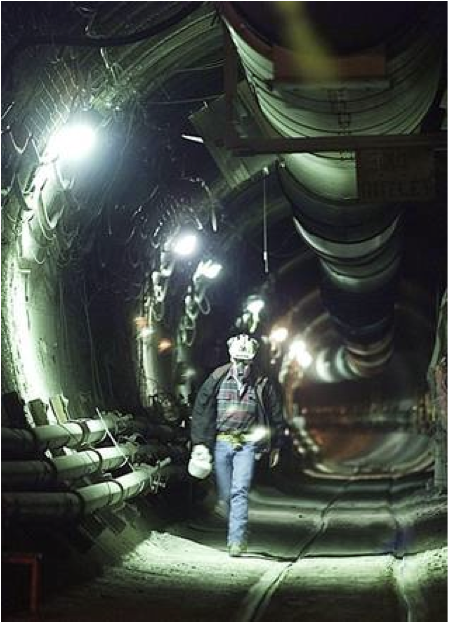|
Abstract |
|
|---|---|
|
Studying the flow of water in fractures is challenging and difficult, primarily because the relevant processes are not directly observable and must be inferred. This is especially true for the Yucca Mountain Project, the US Department of Energy's proposed nuclear waste repository, because fractures are the principal avenue by which radioactive contaminants may escape. As a result, understanding the flow of water in fractures at Yucca Mountain is a crucial public health/safety concern, as well as being of scientific interest. In this talk I will explain how a simple integral equation can be used to model complex fracture flow tests, and demonstrate its application to laboratory studies and field data taken from underground tests at Yucca Mountain. In spite of the simple nature of the equation the model gives results comparable with much more complex numerical simulations, and provides some surprising insights into flow in fractured rocks. |
 |
| The Exploratory Studies Facility, one of the tunnels that comprise the DOE's underground testing laboratory at Yucca Mountain, Nevada |